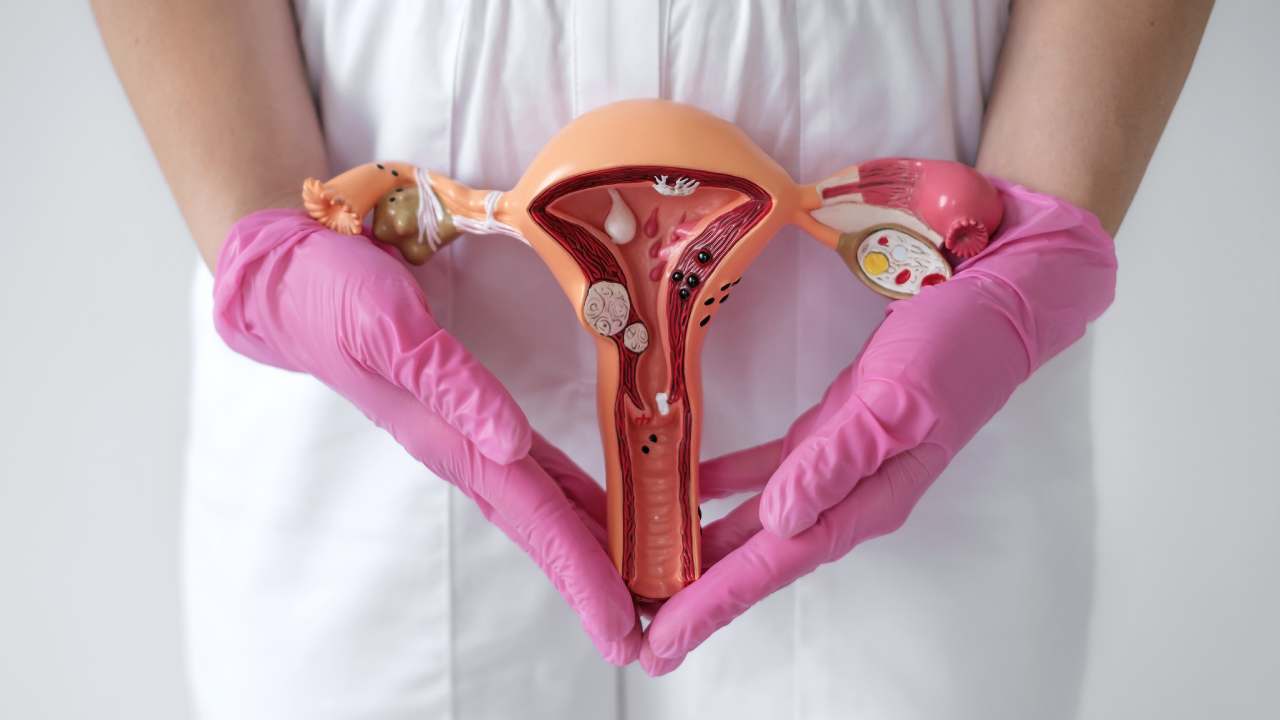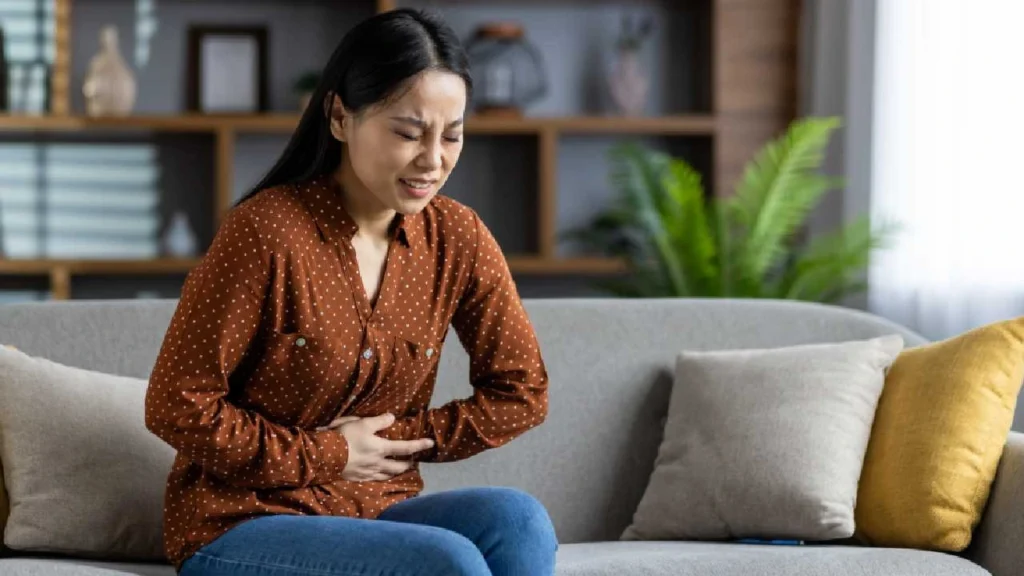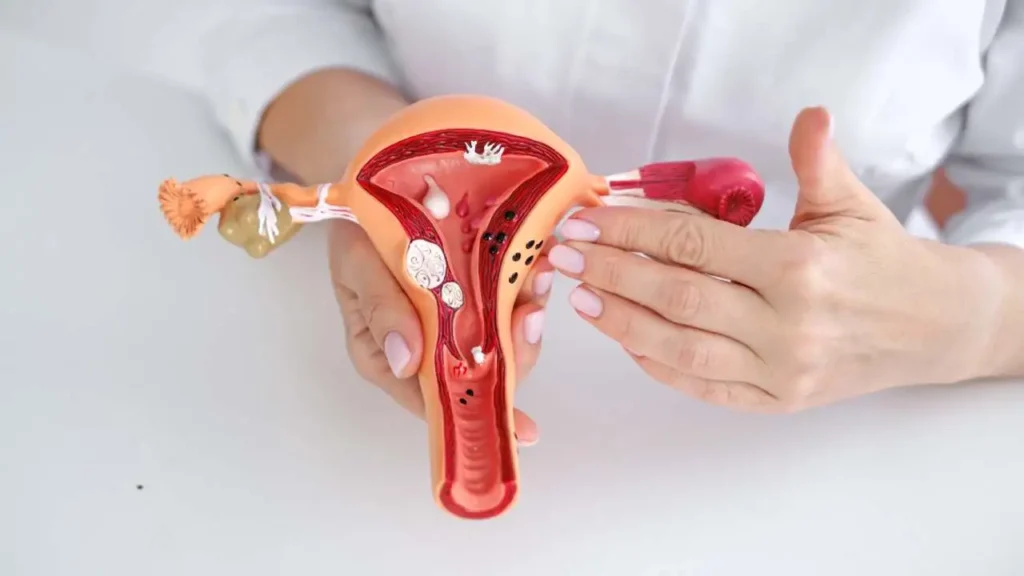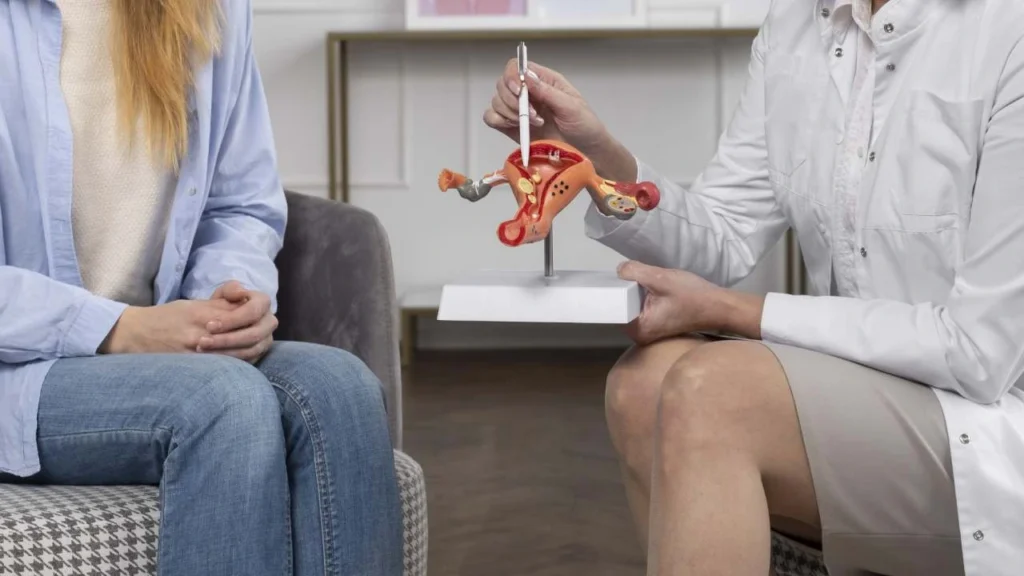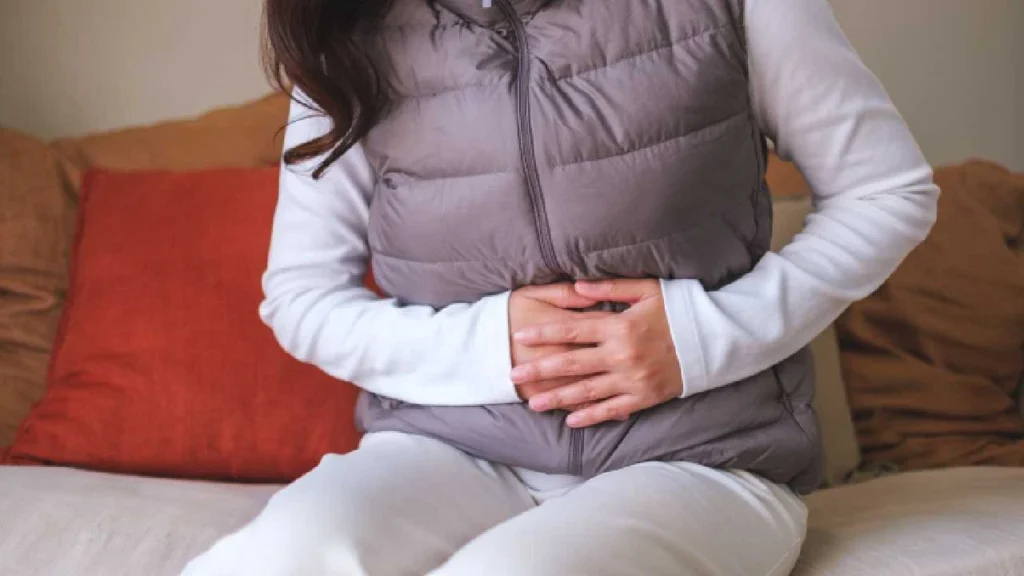Do Uterus Fibroids Cause Pain?
Yes, uterine fibroids can absolutely cause pain. While some women remain symptom-free, many experience different types of discomfort based on fibroid size, number, and location. The pain can range from mild to severe, and its intensity may vary depending on when it occurs or which organs the fibroids press against.
So, do uterus fibroids cause pain? The answer is often yes, but it’s not always easy to identify. Let’s break down the most common types of fibroid-related pain.
Pelvic Pain and Pressure
Fibroids can cause persistent pelvic ache or pressure, which may feel like a dull, heavy weight deep in your lower abdomen. It can worsen when you’re standing, bending, or during physical activity. The discomfort typically comes from fibroids pressing on nearby organs.
Menstrual Cramps and Heavy Bleeding
If your periods have become more painful, fibroids might be why. Fibroids can make menstrual cramps intense and lead to heavy bleeding. These symptoms are common with submucosal fibroids, which grow just under the uterine lining and distort the shape of the uterus.
Pain During Sex
You might notice pain during or after intercourse, especially in certain positions. This is often due to fibroids located near the cervix or in the lower uterus, which can cause pressure and discomfort when touched. For many women, this symptom is frustrating and impacts intimacy.
Lower Back and Leg Pain
Does fibroids in uterus cause pain outside the pelvis? Surprisingly, yes. Fibroids can compress nearby nerves, especially the sciatic nerve, leading to pain that radiates to your lower back, buttocks, or legs. This symptom often gets mistaken for musculoskeletal issues.
Bladder or Bowel Discomfort
Large fibroids can press against your bladder or rectum, causing urinary frequency, constipation, or rectal pressure. This pressure may not initially feel like pain, but it can escalate into discomfort or spasms over time.
Factors that Affect the Intensity of Pain
When it comes to fibroids, size and location matter. A small fibroid in a quiet spot might not bother you at all. But larger ones, or those in sensitive areas, can cause significant pain. Let’s explore how specific characteristics affect pain intensity and type:
Size of the Fibroids
The larger the fibroid, the more space it takes up in your uterus, and the more pressure it can exert on adjacent organs. Fibroids larger than 5 cm are more likely to cause symptoms, especially if they grow rapidly or multiply.
Location in the Uterus
Fibroids grow in different layers of the uterus. The location of the fibroid determines which nerves or organs it may irritate, leading to different types of pain. These are the possibilities:
- Submucosal fibroids (beneath the lining) often cause severe menstrual bleeding.
- Intramural fibroids (within the wall) are most likely to trigger pelvic pressure or bloating.
- Subserosal fibroids (on the outer surface) tend to cause back or bladder pain.
Number of Fibroids
Women with multiple fibroids may experience more widespread symptoms, as the uterus expands or distorts to accommodate them. The pain may feel generalized across the lower abdomen or shift as fibroids grow in different directions.
Rate of Growth
Fibroids that grow rapidly, especially during pregnancy or hormonal fluctuations, can outgrow their blood supply, leading to a process known as fibroid degeneration. This causes acute, sharp pain and even inflammation in some cases.
How to Know Your Discomfort Is Related to Fibroids
So, how do you figure out if fibroids are the real reason behind your symptoms? It can be tricky since many signs overlap with other conditions like endometriosis or ovarian cysts. But there are clues you can look out for.
You Have a History of Heavy or Painful Periods
If your periods have always been heavy, but now come with more clotting, cramping, and fatigue, fibroids could be to blame. In fact, prolonged or very heavy menstruation is one of the top reasons women get diagnosed with fibroids.
Your Belly Feels Bloated or Full
Does uterus fibroids cause pain that mimics pregnancy or bloating? Yes, especially when fibroids grow large enough to push the uterus outward. This can make your lower abdomen look or feel swollen, even if you’re not gaining weight.
Your Pain Worsens With Movement or Sex
If certain activities trigger your discomfort, especially intercourse or exercise, it may point to uterine fibroids. The physical movement of your uterus or nearby muscles can put pressure on fibroids, causing severe pain during movements.
Pain Doesn’t Go Away With Over-The-Counter Remedies
Mild menstrual cramps usually respond well to ibuprofen or heat packs. If your pain persists or worsens despite using these remedies, it’s time to explore whether fibroids are involved.
You’ve Been Told You Have a Uterine Mass
Maybe a past ultrasound showed a “mass” in your uterus, but it wasn’t followed up on. Many women live for years with undiagnosed fibroids, unsure of what’s causing their symptoms. An updated pelvic exam or imaging can help confirm the cause.
Contact Us To Find Relief From Fibroid Pain
Pain from fibroids can be subtle or severe, and may be constant or cyclical. But if it’s affecting your quality of life, you don’t have to suffer through it.
At Fibroid Pain Center, we specialize in uterus-sparing, non-surgical treatments like uterine fibroid embolization (UFE) that target fibroid symptoms at the source. Our team is led by Dr. Andrew Cortes, a board-certified interventional radiologist who helps women take control of their reproductive health without surgery. We offer same-day outpatient UFE procedures in Clifton and Morristown, NJ, to help you get back to your life quickly.
FAQs
Can Small Uterine Fibroids Still Cause Pain?
Yes, even small fibroids can cause pain depending on where they are located. If a small fibroid presses against a sensitive area like the bladder or endometrial lining, you might experience cramps, pelvic pressure, or frequent urination.
Does Fibroid Pain Feel Like Period Cramps?
Fibroid pain can feel very similar to menstrual cramps but may be more intense or longer-lasting. You might notice that the pain starts before your period or continues after it ends, which is a sign that fibroids could be involved.
Can Fibroid Pain Be Mistaken For Digestive Issues?
Absolutely. Some women confuse fibroid-related bloating or pelvic pressure with indigestion or constipation. If you’re experiencing persistent abdominal fullness or changes in bowel habits, it’s worth checking if fibroids are the cause.
When Should You See a Doctor for Fibroid Pain?
If your pain is interfering with your daily life, not improving with over-the-counter medications, or accompanied by heavy bleeding, you should seek medical help. A quick pelvic ultrasound can help determine if fibroids are the cause of the symptoms.
Do Fibroids Always Require Surgery?
No. Minimally invasive treatments, such as uterine fibroid embolization (UFE), can shrink fibroids without the need for surgery. It’s often a safer, faster option with a quicker recovery.

